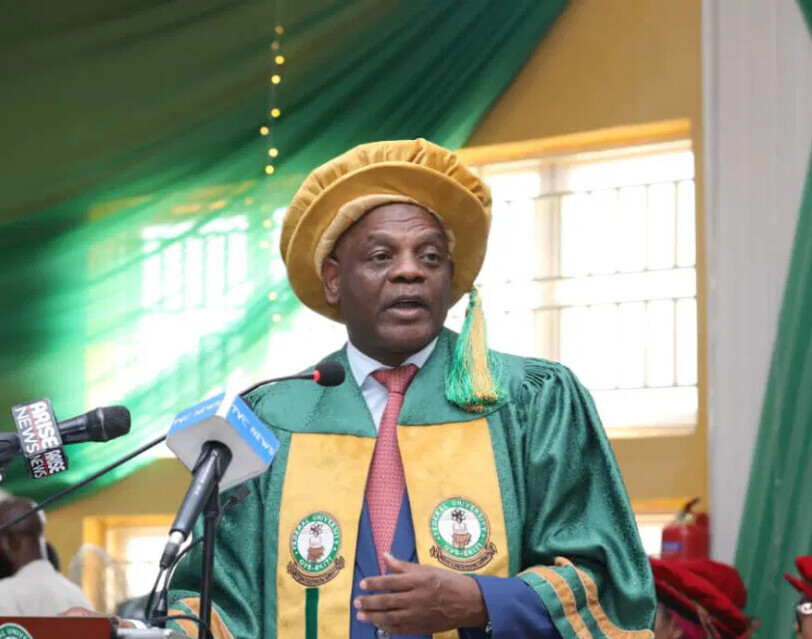The Tertiary Education Trust Fund (TETFUND) has urged the federal government to eliminate its current policy on Nigerian universities and provide them with full autonomy. This appeal was made by TETFUND Executive Secretary Sonny Echono during the 9th convocation ceremony of the Federal University, Oye-Ekiti (FUOYE).
Echono raised concerns about the federal government’s control over universities, despite the Universities Autonomy Act №1 of 2007, which is intended to allow universities to self-govern and manage their finances. He emphasized that the Act aims to free universities from bureaucratic restraints, allowing governing councils to operate without external interference. However, he noted that government involvement, including the dissolution of councils, has hindered the establishment of independent appeal processes.
In his convocation lecture, “University Autonomy and the Challenge of Quality Tertiary Education in Nigeria,” Echono argued that true autonomy would enable universities to manage their curricula, staff welfare, and finances more effectively. He clarified that granting autonomy does not exempt the federal government from its funding responsibilities or suggest privatization of the institutions.
Echono stated that the current government policy on university autonomy in Nigeria permits institutions to self-govern, appoint key personnel, set staff conditions, control student admissions and academic curricula, manage finances, and function as independent legal entities without federal government interference. This policy is based on the Universities (Miscellaneous Provisions) (Amendment) Act 2003, also known as the Universities Autonomy Act №1 of 2007. Enacted by the National Assembly on July 10, 2003, and officially gazetted on January 12, 2007, the Act aims to free universities from bureaucratic constraints and empower their governing councils to operate without external influence.
Echono highlighted that the government retains ultimate control over universities through constitutional provisions and the power to dissolve governing councils. The President acts as the final decision-maker in appeal processes for federal institutions, and legislative authority allows the government to influence university operations. Consequently, autonomy granted by the Act is limited; for example, Section 2AAA (2) requires university councils to ensure fund disbursement aligns with government-approved budgetary ratios.
While the Act does not explicitly address internally generated revenue, universities may assume they can freely manage such funds. However, the government’s Treasury Single Account (TSA) policy mandates that all revenues from government entities be deposited into the TSA, creating a conflict with the intent of autonomy.
Echono emphasized the need to resolve these conflicts to truly restore university autonomy. He clarified that autonomy does not exempt the government from its funding responsibilities and does not indicate a move toward privatization. He outlined that university autonomy encompasses three critical areas: academic, administrative, and financial independence.
In his address, President Bola Tinubu reaffirmed his administration’s commitment to funding universities to enhance the quality and functionality of education. Represented by Professor Adebayo Bamire, Vice Chancellor of Obafemi Awolowo University, he underscored the APC-led government’s acknowledgment of the importance of accessible quality education for all Nigerians. Tinubu stated, “The federal government recognizes the importance of quality education. My administration is unwavering in its commitment to quality education and university funding. We are dedicated to supporting higher institutions to ensure their success.”
During the convocation ceremony, the university awarded honorary degrees (Honoris Causa) to four distinguished individuals for their significant contributions: Senator Kanu Agabi, SAN, former Attorney General; Chief Adebayo Ojo, SAN, also a former Attorney General; Segun Alebiosu, Managing Director of First Bank of Nigeria; and Dr. Allen Onyema, Chairman of Air Peace Airline. In response, Senator Kanu Agabi, representing the awardees, expressed gratitude to the university and viewed the honor as a motivation to achieve more. He urged the federal government to reassess its policies in order to promote investment in the country instead of implementing laws that hinder development.
During the event, the university conferred degrees on 8,444 students, including 177 first-class degrees, 3,466 second-class upper, 3,715 second-class lower, 831 third-class, and two pass degrees. Additionally, the institution graduated postgraduate students, which included 38 Ph.D. candidates, 211 MSc/MBA graduates, and four PGD recipients.
